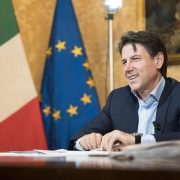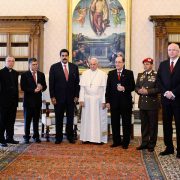
On the night of August 20, the old Russian tradition of terrorism came back. Darya Dugin, daughter of Alexander, top ideologist and advisor to Russian president Vladimir Putin, was killed by a bomb while speeding with her car on a highway out of Moscow. The father was supposed to be with her but changed the plan at the last minute.
The attack was carried out by specialists (they knew Dugin’s movements) with military skill (the car was blown out with an IED, tricky to make without experience). Therefore, more attacks on the top leadership and their families could come.
The war has moved from the dirt of the Ukrainian battlefields to the paved roads of Moscow or St Petersburgh. It’s a different ballgame now. The post-Putin fight has started.
That is: some people in Russia are fed up with the war in Ukraine and with Putin, and they want to get rid of him and his people. It should happen fast to salvage some semblance of Russia. The more the war drags on, the more the internal opposition gains momentum and becomes nasty, and the more challenging it is to control its fallouts. Russia itself is on the brink.
Historically, Russia underwent massive domestic upheavals after every war defeat. In 1905 the Czar conceded the constitution after losing to the Japanese; in 1917, the empire fell, and the communists staged a revolution after losing to the Germans; in 1989, the USSR crumbled down after losing in Afghanistan.
The war in Ukraine is aimless; nobody knows what Putin wants to achieve to stop the fight; therefore, it’s lost; it’s a reckless waste of lives and resources.
It failed to conquer Kyiv in three days; it was unable to surround and rout most of the Ukrainian army in the east, and it couldn’t break through in frontal attacks from the east. The war has been stuck for at least four months, and for a few weeks, Russian troops have been on the defensive thanks to the new HIMARS long-range tactical missiles and growingly active Ukrainian guerrilla warfare.
However, so far, Moscow has hoped for two things. The price hikes, driven by a cut in Russian gas supplies, would split the EU, and countries like Germany or Italy, heavily dependent on those supplies, would back off from the war. It would not impact arms flows to Ukraine, coming mainly from the US. Still, it could sap EU sentiment and rekindle frictions in Europe, giving Putin a political result he could show off domestically.
Besides, he could have hoped that in America the bitter infights about ex-president Donald Trump could simply turn away any interest from a struggle for Kyiv. It would restart the old idea of coming to terms with Putin because “Russia is more important than Ukraine.”
Neither was likely to happen because the US knows it is not a simple European game. The US believes it must also support Ukraine to thwart any extra Chinese ambition on Taiwan and east Asia. That is, if Russia were to win in Ukraine, it would definitely be the start of a flaming WW3. The attack on Dugin now proves that Russia is frailer than previously thought.
However, for Putin, this was the only bet. If he recognized his failure in the war, he was done for.
Then he had to drag on fighting as long as possible, hoping something would crack among his vast disunited front of enemies. It was a senseless bet strategically, but it made sense if your life depended on it.
Now it has become simply impossible. The terrorist attack could mean Russia is already cracking up, and one could wait to pick up the pieces. Putin can now step up an internal crackdown. It would spread opposition to the government and thus feed the terrorism or do nothing, and terrorism would just soar. It’s the classical operational vice leading to an escalation of conflict and, ultimately, revolution. It’s not impossible to break the vice, but it’s very hard.
Then to shorten the war, the US perhaps could offer Putin a safe haven for him and his family and work out a viable future Russian political arrangement. The Holy See or Israel could guarantee the deal. This deal would not be as good as the one he could have gotten four or six months ago. But it could be better than the one awaiting him in two or three months. It could sound morally despicable, but it’d be to try to save the future of Russia.
If he doesn’t accept it, the US should brace for a long battle facilitating alternative gas supplies to the EU, eliminate “Manchurian candidates” within the western front, and flood Ukraine with weapons to overwhelm Russian troops. Moscow’s internal dissent would take care of the rest.
In any case, the end of the war might have begun.





